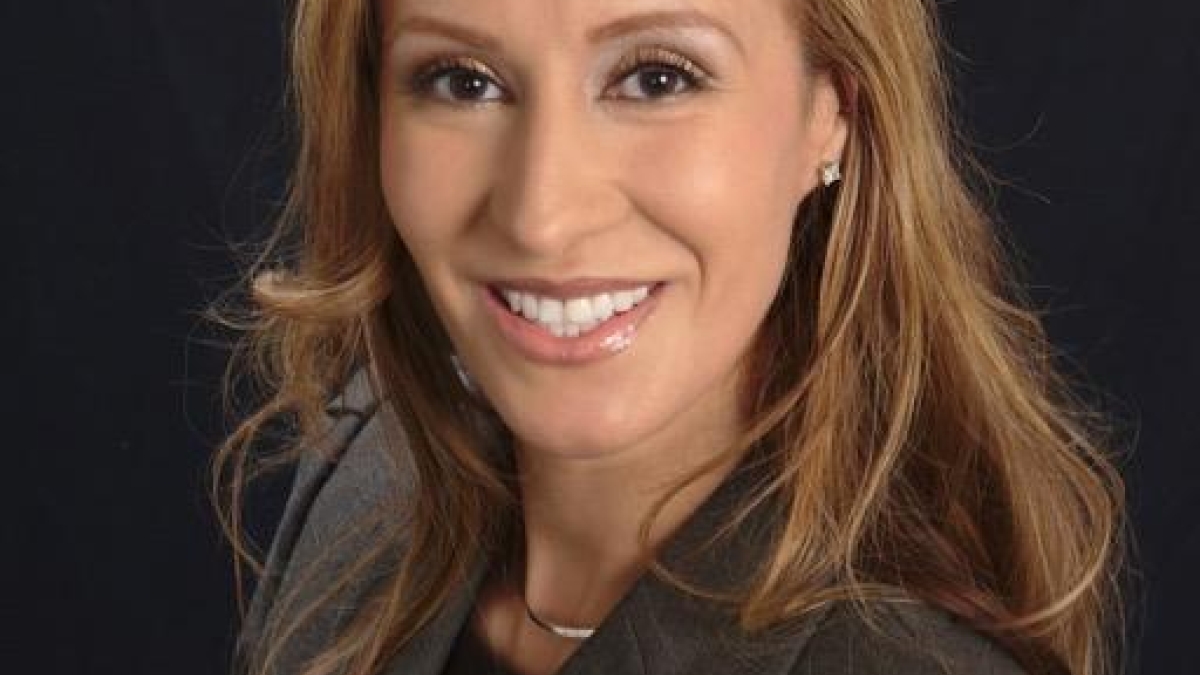Erika Camacho represents ASU New College at STEM leadership training

ASU Associate Professor Erika Camacho conducts research at the interface of mathematical applications to biology and sociology.
Erika Camacho, associate professor in Arizona State University's School of Mathematical and Natural Sciences, in the New College of Interdisciplinary Arts and Sciences, represented ASU at the SACNAS – HHMI Advanced Leadership Institute to participate in advanced leadership training to increase STEM leaders of color.
The SACNAS – HHMI Advanced Leadership Institute is led by Society for Advancement of Chicanos/Hispanics and Native Americans in Science (SACNAS) and the Howard Hughes Medical Institute (HHMI).
The institute, held June 4–7 at HHMI in Chevy Chase, Maryland, was an intensive advanced course for graduates of the Linton-Poodry SACNAS Leadership Institute (LPSLI). Participants tackled topics including: career success factors; increasing spheres of influence; challenges in organizational leadership; leading and managing policy initiatives; and decision making and team dynamics in executive teams.
HHMI is the ideal partner to help established leaders deepen their skills, said Rolando Madrid, SACNAS director of programs.
“HHMI has a strong legacy of supporting diversity, inclusion, mentoring and scientific excellence in the highest caliber of America’s STEM professionals,” he said.
Sonia Zárate, president-elect of SACNAS, said, “For 45 years, SACNAS has been a leader in diversifying the STEM enterprise. Like all challenges, changing the face of science to reflect current demographics requires a multipronged approach that includes training individuals and working to change the environment that the individuals are in. The SACNAS suite of leadership programs, which includes the LPSLI and the ALI, serve to empower participants as agents of change — the overall goal of these two programs being to prepare a cadre of diverse scientific leaders that will help drive diversity, equity and inclusion at all levels in their home institutions.”
Clifton Poodry, a founding member of SACNAS and co-founder with Marigold Linton of the LPSLI, said, “The scientific enterprise of the country, whether in academia, industry or government, benefits from the values and expertise embodied in the diverse membership of SACNAS. The LPSLI and ALI are designed to hone the skills of a group that will change the face of science.”
Camacho conducts research at the interface of mathematical applications to biology and sociology. Some of her projects include mathematically modeling the transcription network in yeast, the interactions of photoreceptors, social networks, and fungal resistance under selective pressure. She serves as co-director of the Applied Mathematical Sciences Summer Institute (AMSSI) and was co-principal investigator for two grants from the National Security Agency providing funding for the summer institute. Camacho has received various awards including a citation from the U.S. National Security Agency for her excellent work in mentoring and guiding undergraduate research.
More Science and technology
2 ASU faculty elected as fellows to National Academy of Inventors
Arizona State University faculty members Bertram Jacobs and Klaus Lackner have been elected as fellows to the National…

Harvesting satellite insights for Maui County farmers
Food sovereignty can refer to having access to culturally significant foods, but Noa Kekuewa Lincoln believes it goes farther…

Google grant creates AI research paths for underserved students
Top tech companies like Google say they are eager to encourage women and members of historically underrepresented groups to…